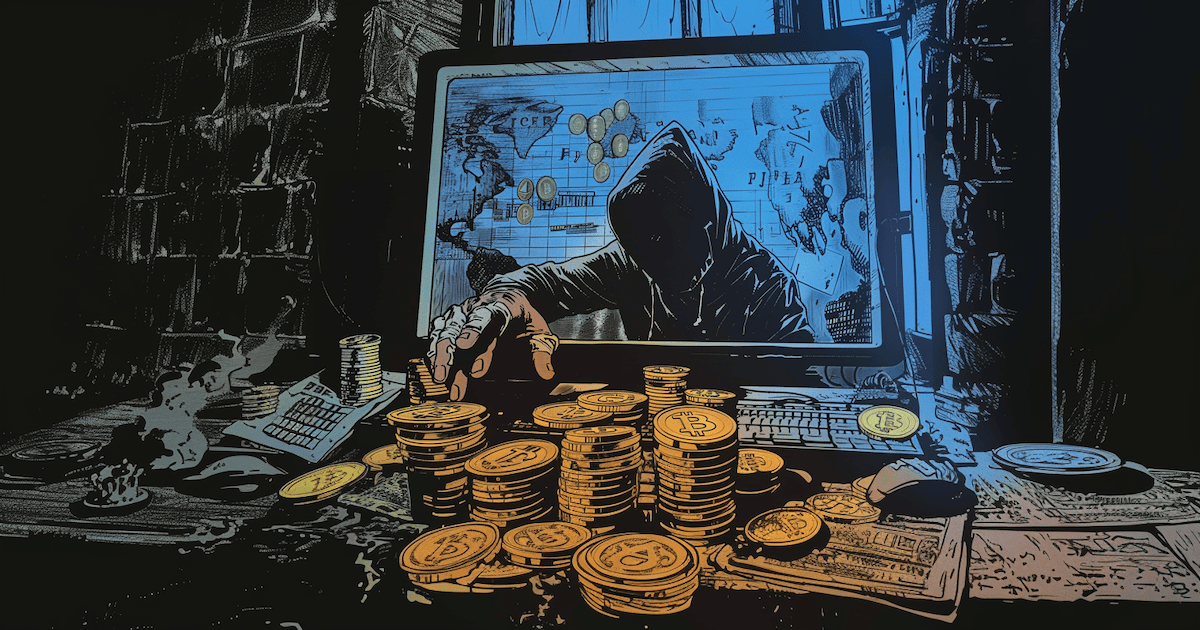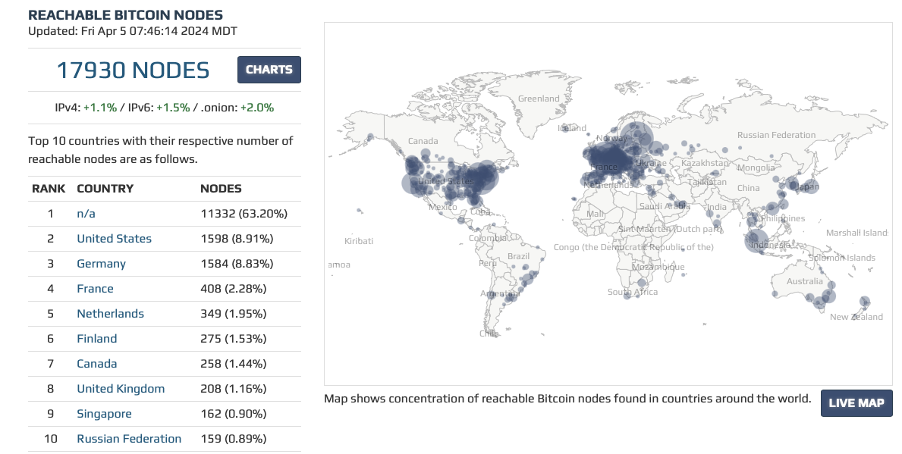
If the scenario you described, where a bad actor gained control of the world’s internet servers, how would it effect bitcoin? Would it too be a victim? Would any and all internet connection be done away with for all and for good? — Joseph D.
Jeff, I really enjoy the information you supply via your daily newsletter (Outer Limits). I was a subscriber to your publications when you headed up Brownstone Research. My question to you is regarding the Linux software breach. How would this type of threat affect the cryptocurrency market and one being able to access exchanges such as Coinbase, Kraken, etc.? Thanks for your time and indulging my ignorance. — Michael R.
Hello Michael and Joseph,
Thanks for raising this interesting question. It’s a good opportunity to think about the real implications of a hack like the one that I wrote about in Outer Limits — The World Just Barely Avoided a Doomsday.
A good place for us to start is with an understanding that the Linux servers that would have been affected by the hack are the servers that run the software systems that support the applications that we all use daily.
These Linux servers are different than the internet routers and switches that enable information to be sent from one place to another.
It’s true that e-mail systems, and most software applications, would have collapsed under an attack. But the physical infrastructure and the internet routing technology would still be in place.
It would definitely feel like the entire internet had crashed, as almost all applications would be lights out. But for software running on non-Linux based servers, or Linux servers that didn’t upgrade to the latest software, they could be functional.
Which brings me to bitcoin, cryptocurrencies, and more broadly blockchain technology.
Bitcoin, and other decentralized blockchain protocols, if properly designed, would be safe from an attack like the one we learned about. A decentralized protocol like Bitcoin is designed to be resilient with hundreds or thousands of independent nodes running the bitcoin blockchain.
The best blockchain networks are designed with resiliency, precisely to make them more robust and outside the control of any nation state or bad actor.

As an example, in the graphic above, we can see that the Bitcoin network has almost 18,000 nodes running spread out around the world.
It’s worth noting that digital assets that are stored in digital wallets on a well-designed decentralized blockchain would also be safe from the kind of attack we heard about. Of course, a cold wallet — or better yet, a hardware wallet like Trezor or Ledger — are the safest way to store digital assets.
And Coinbase, in particular, is the best-in-class digital asset exchange to work with regarding cryptocurrencies. Well-funded, well-run exchanges have backup systems in place and extra layers of security in order to protect its customers’ digital assets.
It’s very useful for us all to think about these kinds of scenarios and then think about our own individual exposure. Knowledge allows us to better prepare for these kinds of black swan events, of which there will definitely be more…
I have heard of a company making private servers. Would having a private server keep us safe. It is an added expense, but if it worked, would it help? I am not really a tech nerd but someone like you could explain the pros and cons. Thanks!! — Sheila
Hi Sheila,
There are alternatives to the most widely used versions of Linux that I wrote about. Server operating systems like FreeBSD, Dragonfly BSD, Pfsense, FreeNAS, TrueOS, Linux Mint, Puppy Linux, and many other provide a lot of options.
The problem is that the industry has largely centered around a limited number of Linux versions because of the concentration of talent and developer community that has been built over the last couple of decades.
It is possible for consumers to purchase their own hardware firewall equipment for the home. Companies like Cisco, Check Point, Fortinet, and Palo Alto Networks all have good technology that would provide an added layer of protection from viruses and cyberattackers to a home network.
But setting up and managing a system like that does take some training and effort. And most home networks aren’t the target of bad actors — they tend to focus on networks where there is a much larger potential for monetary gain — for example, holding a corporation’s data in hopes of collecting a multimillion dollar ransom.
To make matters more complex, security is linked to both the hardware of a firewall, as well as the software that runs on it. This is why corporations are often upgrading their security hardware (servers/“boxes”). When a security flaw is discovered on a semiconductor, it can’t be fixed by software. The hardware unit needs to be replaced.
So to answer your question more specifically, there are ways to make your own network safer, but if we are connected to the internet in any way, there is always a risk.
Was you picture of the Bolthole generated by AI? — Tim L.
Jeff, your bolthole is awesome. Is it a real thing in a real place? Or a plan? Or dream? —David H.
Hi Jeff, just saw the image of the Brownridge Bolthole. Is that real, or just a generated image? — Dan F.
Tim, David, Dan, and so many others, thanks for all the interest and questions about my bolthole.
I’ll always be straight with you, and I’d like to tell you all more, but security is first and foremost when it comes to having a bolthole.
It’s such an interesting topic that deserves a lot of attention.
One of the best ways that I like to think about it is that it's an insurance policy. It is a place of calm, but it is not a place to escape the world. I intend to be in the mix for so many years to come.
So having a bolthole is simply a place of resiliency, kind of like being part of a decentralized network. I must be able to stay up and running no matter what craziness ensues in the world.
And these days, it’s possible. Now that SpaceX has its fully operational Starlink network, broadband connectivity is available anywhere on the planet as long as we have a power source to power the receiver and our computers.
You all have given us some good ideas. I might just put together some extensive research on how to create your own bolthole.
Lindsey and I have been joking about establishing an armamentarium — a fun word used to describe having all the resources available for such a purpose. In this case, that purpose would be how one would go about setting up the insurance policy...
The bolthole.
Thanks for a great week! We always welcome your feedback. We read every email and address the most common comments and questions in the Friday AMA. Please write to us here.